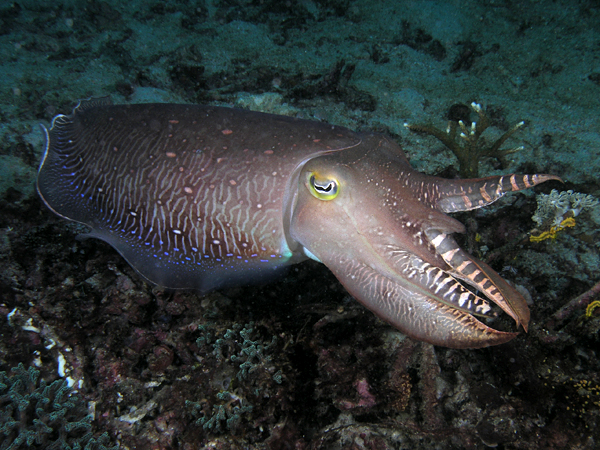Do cuttlefish have more self-control than most people?
These squid-like creatures have shown a remarkable sign of cognitive intelligence according to a new study. Alexandra Schnell, a comparative psychologist at the University of Cambridge in England, has been researching cephalopod behavior in a series of tests. Six aquatic subjects were examined in a new version of the marshmallow test, and the results show that there’s more going on in these squishy creatures than we know.
The marshmallow test was originally designed for human children to study their response to delayed gratification.
In the original marshmallow test, when left alone in a room, a child is offered two choices: 1) one small but immediate reward, or 2) a greater reward if they wait for a period of time. They are told if they can manage not to eat the marshmallow for 15 minutes, they’ll get a second marshmallow, and be allowed to eat both.
In a modified version of the test, the cuttlefish “were all able to wait for the better reward and tolerated delays for up to 50-130 seconds,” stated Schnell in her research.
The cephalopods were placed in a special tank with two enclosed chambers. In each the chamber were snacks — a piece of raw king prawn in one, and the second with much more enticing live shrimp. The subjects would only be able to access the second chamber after a certain amount of time. If they chose to go to the first chamber, the live shrimp would be removed from their choices.
The results show that these marine animals can exhibit self-control. So hang in there, if a cuttlefish can do it then so can you. As the saying goes, “good things come to those who wait.”
Other POP! stories you might like:
Science says there’s a reason why cats keep knocking things over
Planet discovered by teenage NASA intern looks like a BTS album cover
Beaver families officially find permanent home after five-year trial
Transparent wood could replace glass as a sustainable alternative



